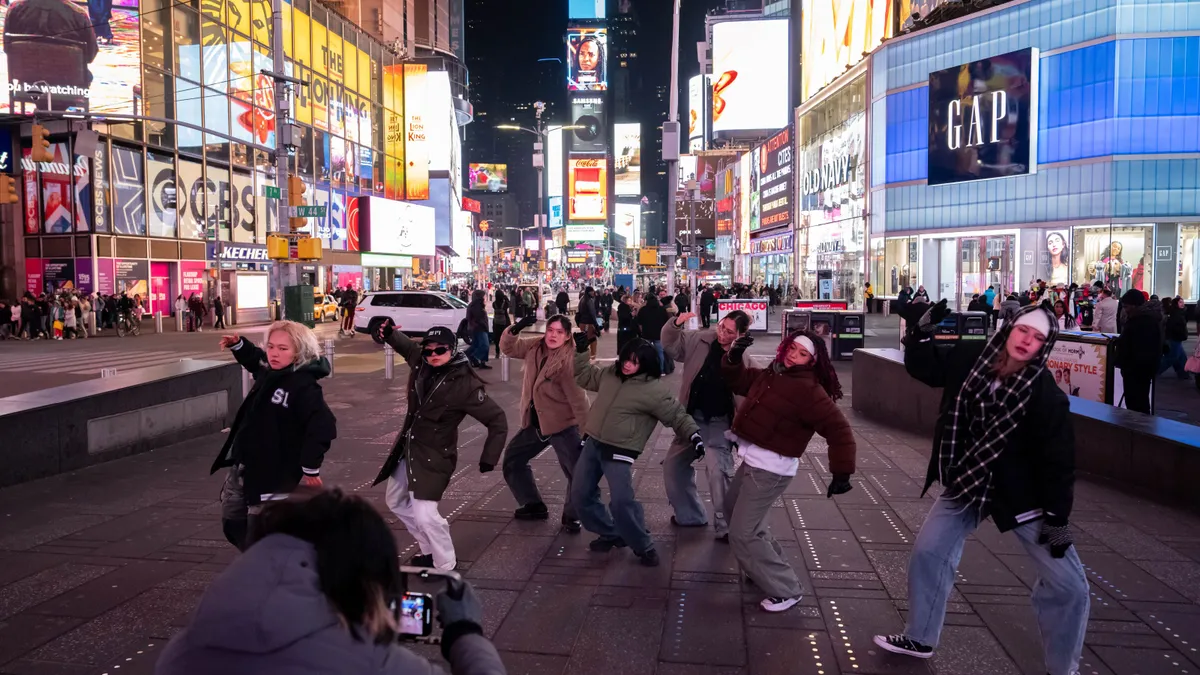Dive Brief:
- The Supreme Court ruled unanimously Friday that a law shutting down TikTok or forcing new ownership of the popular social video site is constitutional. U.S. national security concerns over Chinese influence of the site outweigh the company’s argument that Congress violated its First Amendment rights, the court held.
- The Biden administration will leave enforcement of the law – which takes effect Sunday – to the incoming Trump administration. President-elect Donald Trump had asked the justices to delay their ruling to allow for a negotiated settlement or to locate a suitable buyer for the company, which has about 170 million U.S. users.
- Trump signed an executive order in 2020 targeting TikTok as a U.S. threat because of its Chinese ties, but subsequently vowed to “never ban TikTok.” The company’s chief executive, Shou Chew, is attending Trump’s inauguration on Monday and has been invited to sit in a prominent place at the event, according to news reports. After the ruling, the TikTok CEO posted a video thanking Trump for his support.
Dive Insight:
China’s influence over TikTok’s parent, Beijing-based ByteDance, created a swell of bipartisan support in Congress for passing the 2024 law aimed at protecting U.S. consumer data from the Chinese government.
The legislation, the Protecting Americans from Foreign Adversary Controlled Applications Act, considers China a “foreign adversary country” and was tailored specifically to cover ByteDance and TikTok. President Joe Biden signed the bill into law in April.
The platform has driven the rise of numerous social media and corporate influencers and drawn marketing interest from many U.S. companies. Multiple TikTok media influencers and other users joined the company in September in Washington when the U.S. Court of Appeals for the D.C. Circuit heard oral arguments on the company’s claims, preceding its appeal to the Supreme Court.
TikTok argued that it wasn’t commercially possible to divest its business within the 270 days specified in the law, which created an effective U.S. ban on the platform on Jan. 19.
The company has drawn buyer interest, with a group called Project Liberty, founded by billionaire entrepreneur Frank McCourt, submitting a formal proposal earlier this month.
China has also considered selling the platform to billionaire Elon Musk, the chief executive of Tesla, which also operates in China, according to media reports this month. Musk is also a major Trump political donor and ally.
In the 9-0 ruling, justices found that the law is content neutral and agnostic as Congress had not targeted any specific speech but was focused on China’s ability to collect personal data of 170 million U.S. consumers.
“While we find that differential treatment was justified here, however, we emphasize the inherent narrowness of our holding,” the court said in its unsigned ruling. “Data collection and analysis is a common practice in this digital age. But TikTok’s scale and susceptibility to foreign adversary control, together with the vast swaths of sensitive data the platform collects, justify differential treatment to address the Government’s national security concerns.”
In a concurrence, Associate Justice Neil Gorsuch wrote that he holds “serious reservations about whether the law before us is ‘content neutral’ and thus escapes ‘strict scrutiny.’” However, he concluded, the law “also appears appropriately tailored to the problem it seeks to address.”











